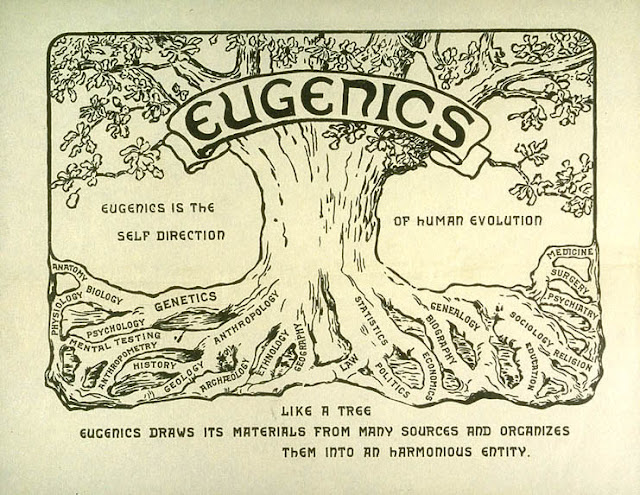Indulge In Some Metaphorical Paranoia
Long ago, Asia wanted to conquer the West. Its first foray, through Mongols, had gone well until it became clear that resistance would be too strong and thus, the invasion too costly. In the grand tradition of plotting over tea and chess, the overlords of Asia met with clasped hands and faintly glowing dark eyes.
"We cannot challenge them directly, so instead we will follow the most devious of strategies: we will turn them against themselves," said one Minister from deep in the rolling hills.
"How can this be done?" asked another.
The Minister from the city spoke up: "We will use two strokes of the axe: first, we will spread the worst of our own society to them, and then, we will turn them against themselves by making them compete against us to be more like us."
As he explained his plans, the others agreed: this was indeed a subterfuge of many subtle layers, misdirections, deceptions, deflections, camouflage, and obfuscation! It made them feel intelligent and powerful just to think of it.
This was many centuries ago.
The initial foray came through the development of the Mongol System: a society based on universal tolerance but the idea of ideology, or something which was not real but still tangible to which people swore, like the idea of allegiance to a grand lord who made sure that all were tolerated. Every religion was welcome, and every tribe.
Next, they sent forth disguised Ministers of their religion, who went to study the ways of the West. Knowing that their prey was prone to curiosity, they simply asked questions. All of their questions sought a single answer: whether the question of religion must involve anything more than the individual.
At the same time their merchants, pushing aside those of the middle east, worked their way into the cities of the West. Here they offered new products, designed not to make life better, but to make the individual stand out more. Makeup, wigs, finery, jewels, and other personal accessories changed the way the people of the West saw themselves.
Simultaneously, their princes and consuls began making treaties with those branches of the enemy nearest to them. To these they wedded daughters, and brought many other young girls who they married off to the nervous intellectual types who lacked the confidence in the physical world that they found in the world of letters. These made mixed-race people who were partial to both sides of their heritage, even when almost invisible.
Finally, the scribes and priests began circulating a mythos of the individual among the cities of the enemy. In this, there was nothing greater than what the individual wanted at the moment; not the order of nature, the circle of life, the golden chain of being, the divine, or even the logical. There was only human choice, much like there was in the bazaars of Asia.
Centuries passed as this continued, like a great in-joke among those in the know.
Eventually, the mixed-race vassal states began to probe the enemy. Having a hybrid identity, they wanted to be of the enemy, but never could be, and this filled them with resentment. These people were still ruled by an elite who were genetically of the enemy, and the common people resented them for that reason alone.
Over time, the common people -- aided by neurotic intellectuals from all over the world -- gained enough power to overthrow their elites. At this point, the subterfuge became intense: the new regime advertised itself as bringing freedom to all, much as the enemy had, but in a new form. In this form, everyone was equal instead of merely free. Equality was enforced by man, not nature.
This enabled the vassal states to compete with the enemy. Their goal appeared to be war, but that was a side-effect; their actual goal was to force the enemy to adopt their own Asiatic way of thinking. They wanted to inject their viral DNA into the enemy, then subvert it. They did this by competing with it on ideological grounds, instead of mere achievement.
As the enemy adopted this new way, it make them weak and splintered their society. Instead of having kings as they once did, now power was something constantly fought over. Eventually, the enemy mustered its strength and defeated the vassal states, but the vassal states despite losing the war won the genocide. Their ideas hopped over to the enemy who adopted a form of them in order to compete with the vassal states by offering its citizens more freedom than the Asiatic system even could.
Now the enemy lay in ruins, defeated by its own people who insisted fanatically on a fantastic dream that Asiatics championed but were always insincere about, so were immune to on their own soil. The ancient lords of Asia laughed at their victory. The conquest was complete.




Comments
Post a Comment